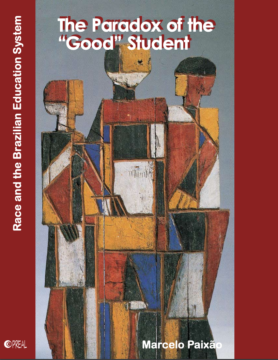Though racial equality is improving in Brazil, there is significant room for progress, argued Dr. Marcelo Paixão, a pioneering Brazilian researcher in the field of race relations. Paixão along with the Inter-American Development Bank’s Judith Morrison discussed his new report on Brazilian census data and its implications for Afro-descendants at an Inter-American Dialogue event on October 20.
Drawing from a vast database of census and household survey data, Paixão, associate professor at the Federal University of Rio de Janeiro (UFRJ), and coordinator of the Laboratory of Economic Analysis, Historical, and Social Statistics and Race Relations (LAESER), found that inequality persists for many Afro-Brazilians. Although Paixão applauded the overall reduction in educational, health and social gaps since the implementation of the 1988 Constitution, he called the lack of access to reproductive health care for black women “completely revolting.” Troubling crime statistics, moreover, show that the homicide rate for black men is more than twice as high as that for white men, and, even though racism is a crime in Brazil today, only one third of legal cases against racism are won by the victim. He therefore urged further action to address these deeply rooted racial inequalities in Brazilian society.
Racial self-identification also presents a major obstacle for progress. Paixão explained that Brazilians may not identify as black, brown or indigenous on the census, fearing the negative societal connotation of race. This ambivalence about racial self-identification prevents black and brown Brazilians from carrying a strong political voice, argued Paixão. They therefore become more the objects of social policies than the subjects.
Still, Brazil has come a long way and has a much more sophisticated awareness of the importance of racial data than many countries in Latin America. Paixão emphasized the importance of quality data and advocated that all Latin American countries include ethnic and racial variables within their census. He cautioned that only careful preparation of surveys will yield quality data, and many revisions may be necessary to most effectively reach a particular audience. Only through carefully and persistently gathering data can governments hope to “identify the main groups being set aside in accessing these rights and services,” he said.
Judith Morrsion stressed that Paixão’s work has successfully influenced government policies and programs, clearly highlighting deficiencies and gaps and giving voice to a group whose social needs would otherwise remain underserved. Paixão hopes that his research techniques will help governments across Latin America more effectively address racial inequality and discrimination.





















